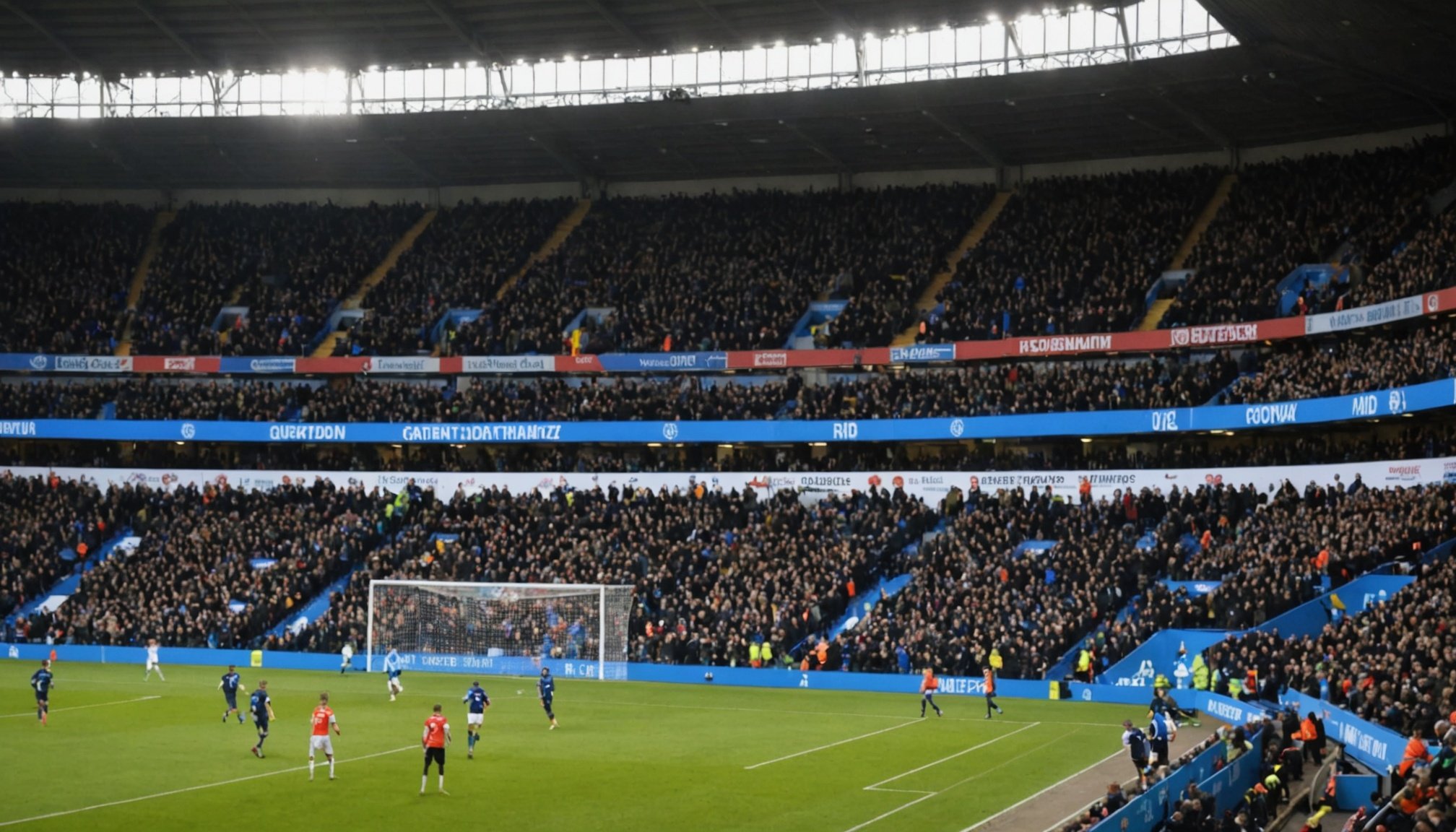The COVID-19 pandemic, more than any event in modern history, has altered the dynamics of industries worldwide, with UK football standing as a notable example of its profound impact. The pandemic has not only changed how the game is played and viewed but has also reshaped its cultural and economic facets. As we delve into the transformation of UK football, we’ll uncover how adaptability, fiscal challenges, and technological innovations have redefined the sport over the past few years.
The Sudden Halt and Its Immediate Challenges
In March 2020, the UK, much like the rest of the world, faced an unprecedented challenge. Football, an integral part of British culture and economy, came to a complete standstill. Matches were postponed, stadiums lay silent, and the buzz of fans became a distant memory. The initial halt was not just a logistical nightmare but also a financial blow to clubs across the country.
Also to read : What are the advantages and disadvantages of artificial pitches in UK football?
The cessation of live matches led to a significant loss of revenue from ticket sales, broadcasting rights, and merchandise. For clubs, especially in lower leagues, this period was marked by fiscal strain. Unlike their Premier League counterparts, smaller clubs relied heavily on gate receipts for survival. This sudden disruption exposed vulnerabilities in the financial model of many football clubs, prompting urgent calls for restructuring.
Moreover, the absence of football had a cultural impact. Football, often described as the ‘heartbeat’ of many communities, left a void. Fans, who regularly congregated in pubs or stadiums, found themselves disconnected from a vital social experience. The pandemic exposed how deeply interwoven football is with communal identity, prompting stakeholders to consider more sustainable, community-focused models.
Also to discover : Unlock exciting offers with the latest betfred promo code
Adapting to an Empty Stadium
As the pandemic wore on, the UK witnessed a slow revival of football, albeit in a drastically altered form. Games resumed behind closed doors, with the eerie silence of empty stadiums replacing the vibrant atmosphere fans were accustomed to. With safety taking precedence, clubs had to adapt to a new normal.
To maintain engagement and revenue, clubs turned to digital platforms. Live streaming became the norm, offering fans a virtual connection to the game they love. Broadcasters played a pivotal role, enhancing viewing experiences through innovative camera angles and augmented reality features.
Players and coaches faced the challenge of performing without the adrenaline-fueled boost from live audiences. The lack of crowd energy altered home-ground advantages, leading to unpredictable outcomes and leveling the playing field in unexpected ways.
Off the field, clubs utilized social media to keep fans engaged, launching digital fan zones and virtual meet-and-greets. The pandemic underscored the significance of digital transformation, pushing clubs to embrace tech-driven strategies.
As stadiums slowly reopened to fans, clubs introduced stringent protocols, focusing on safety and rebuilding trust. The pandemic’s impact on stadium operations continues to influence practices, with a renewed focus on sustainability and health.
The Financial Ripple Effect
COVID-19 sent shockwaves through the financial foundations of British football, highlighting the precariousness of its economic structure. From elite clubs to grassroots organizations, everyone felt the ripple effect.
The Premier League, with its substantial broadcasting deals, fared better than most. However, even the giants faced losses due to empty venues and reduced commercial activities. The financial gap between top-tier clubs and those in lower leagues widened, challenging the competitive integrity of the sport.
Lower league clubs, already operating on tight margins, faced existential threats. Many relied on community support, grants, and innovative fundraising to survive. The situation sparked discussions about the distribution of wealth within the game, prompting calls for a fairer, more equitable system.
On the brighter side, the pandemic prompted clubs to rethink their commercial strategies. Diversification became a buzzword, with clubs exploring new revenue streams such as e-sports, digital merchandise, and non-football events.
The financial ordeal served as a wake-up call, urging clubs to build more resilient, adaptable business models. This period of reflection has paved the way for a more sustainable future, where financial health is balanced with sporting success.
Cultural Shifts and the Role of Community
Beyond the economic and logistical impacts, the pandemic has triggered a cultural shift within UK football. It has reignited the conversation about the role of clubs within their communities, emphasizing the sport’s essence beyond the pitch.
During the lockdown, many clubs turned to community outreach, supporting local food banks, launching mental health initiatives, and offering their facilities for health and social services. These actions reinforced the idea that football clubs are more than just sports entities; they are integral parts of the community fabric.
Fans, in turn, have shown a newfound appreciation for their clubs’ efforts, highlighting the symbiotic relationship between supporters and teams. This renewed focus on community has influenced how clubs engage with their fans, emphasizing inclusivity, accessibility, and mutual support.
The cultural shifts extend to player-fan interactions, with increased transparency and communication. Players have become more vocal on social issues, using their platforms to advocate for change, further solidifying football’s role as a vehicle for societal progress.
As we move forward, the pandemic’s legacy on UK football will likely be characterized by a strengthened community bond, where the sport serves as a catalyst for positive change and unity.
In the wake of the COVID-19 pandemic, UK football has emerged transformed, navigating uncharted waters with resilience and innovation. From grappling with financial challenges to embracing digital transformation and reinforcing community ties, the landscape of UK football has been irrevocably altered.
The pandemic has shown that while football is a game, its significance extends far beyond the field. It has underscored the importance of adaptability, the need for sustainable business models, and the enduring power of community connections.
As we stand on the threshold of a new era in UK football, the lessons learned from this period will continue to shape the sport’s future, driving it towards greater inclusivity, resilience, and community engagement. In this reshaped world, football remains not just a game, but a beacon of hope and unity.











